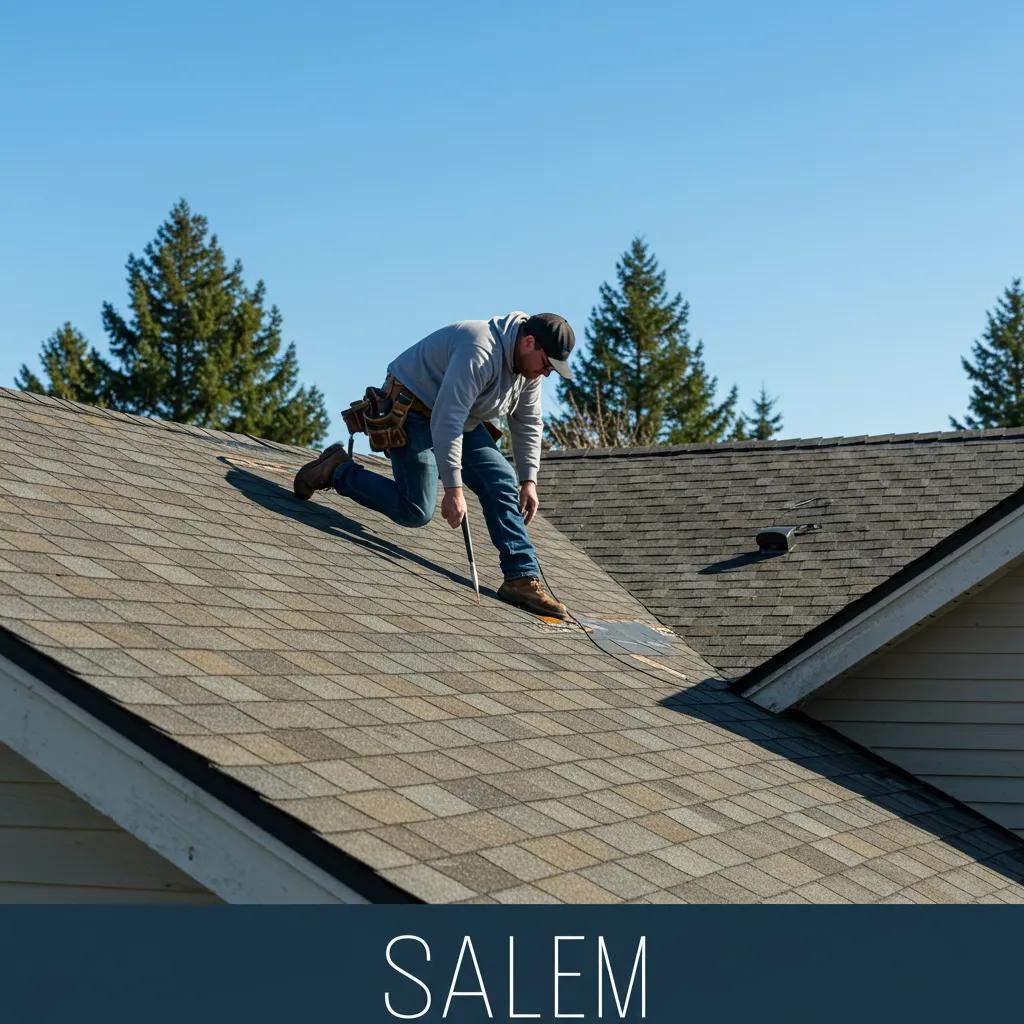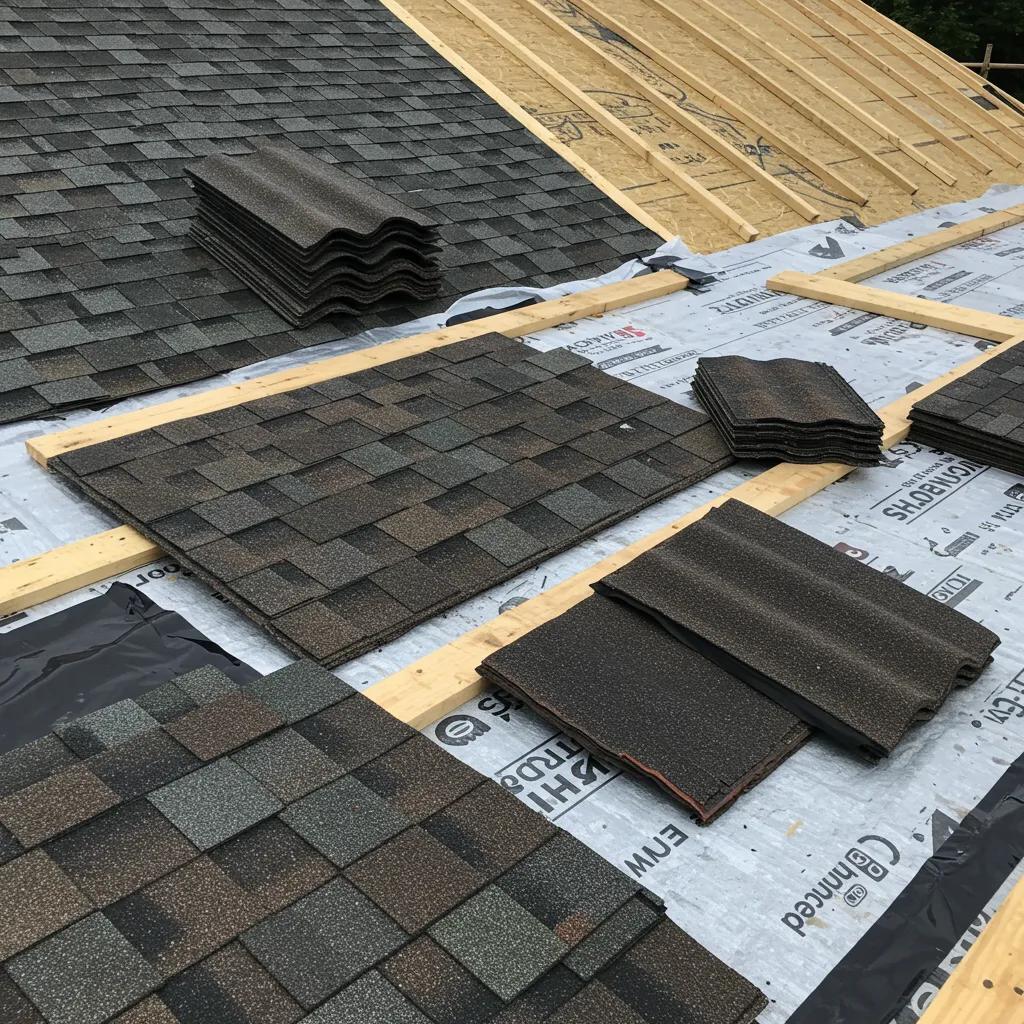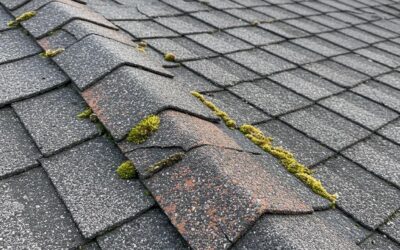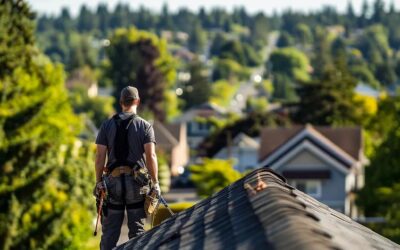
Top Qualities of Salem Roofing Contractors Near You: How to Choose the Best Licensed Roofers in Salem Oregon
Finding a reliable Salem roofing contractor near me is often the first priority for homeowners facing leaks, storm damage, or a planned roof replacement. This guide explains the top qualities to vet—licensing, insurance, local experience, warranties, materials, craftsmanship, customer service, and financing—so you can choose a licensed roofer with confidence. You will learn how to verify Oregon contractor credentials, which insurance coverages protect your property, how local weather and codes affect material selection, and which warranties matter most for long-term value. The article maps five practical evaluation areas: licensing and insurance; local experience and expertise; warranties and guarantees; materials and craftsmanship; and customer service plus financing. Throughout, semantic cues—terms like shingles, underlayment, flashing, GAF Master Elite, Owens Corning, and James Hardie—appear so you can search or ask precisely when contacting contractors. Read on to get checklist-ready guidance for selecting the best Salem roofing company reputation and for making smart comparisons between licensed roofers.
What Licensing and Insurance Should Salem Roofing Contractors Have?

Licensing and insurance protect homeowners by ensuring contractors meet state standards and carry financial responsibility for damage or injuries. A licensed Oregon contractor should present a current CCB number and you should confirm the license status and any disciplinary history before signing a contract. Insurance coverage should include general liability to protect against property damage and workers’ compensation to cover jobsite injuries, which shields homeowners from direct liability. Verifying both license and insurance helps you avoid unlicensed operators and ensures recourse if problems arise.
How to Verify a Roofing Contractor’s License in Salem Oregon
Verifying a roofing contractor’s license begins by requesting the contractor’s CCB number and then checking the official state contractor board lookup to confirm the registration and status. Look for active standing, classifications relevant to roofing, and any recorded complaints or disciplinary actions; if documentation is missing, treat it as a red flag and request proof in writing. Ask the contractor for a copy of the licensed registration card and note the exact name on the license so records match. Knowing how to verify the license makes the next step—confirming insurance—much easier.
Why Is Insurance Essential for Salem Roofing Companies?
Insurance protects homeowners when roofing work causes accidental property damage or when a worker is injured on site; general liability covers property and third-party claims while workers’ compensation covers employee injuries. Without proper coverage, homeowners risk being named in claims or facing repair costs after accidental damage. Always request certificates of insurance showing coverage limits and policy dates, and ask for the insurer name so you can verify the policy directly. Confirming insurance complements license checks and keeps your project financially secure.
What Certifications Distinguish Top Salem Roofers?
Certifications such as GAF Master Elite and SELECT Shingle Master signify a contractor vetted by manufacturers for quality installation, access to enhanced warranties, and adherence to manufacturer-specific installation standards. These credentials indicate training on nailing patterns, underlayment placement, flashing details, and ventilation requirements—meronyms that combine to protect roof performance. When a roofer holds these certifications, homeowners gain clearer warranty paths and higher probability of correct installation. Use certification status as a shortlist criterion before requesting bids.
How Does Experience and Local Expertise Impact Salem Roofing Quality?
Experience and local expertise improve roofing outcomes because seasoned contractors anticipate common issues, streamline project logistics, and know which materials perform well in Salem’s climate. Experienced firms develop institutional knowledge—crew efficiency, supplier relationships, and proven installation sequences—that reduces surprises and speeds project completion. Local expertise also means the contractor understands Salem and Willamette Valley weather patterns, common wind or rain-driven failure modes, and local building code nuances. That practical knowledge translates directly into better material choices, permit handling, and inspection-ready installations.
Why Does 40+ Years of Experience Matter for Salem Roofers?
Long-tenured contractors bring historical problem-solving and established supplier relationships that often mean faster turnarounds and fewer costly callbacks; institutional memory helps crews recognize subtle issues like hidden decking rot early. Experience reduces the probability of installation errors because standardized procedures and trained crews repeat proven techniques. In practice, this leads to more accurate scopes, realistic timelines, and smoother warranty claims when they arise. The next section explains how local climate and codes shape those choices.
(As an example of long-standing local expertise, Jensen Exteriors Roofing and Siding Contractor is family-owned and operated serving the Willamette Valley with over 40 years of experience and carries Oregon CCB# 22035, demonstrating the kind of local track record you should verify.)
How Does Local Knowledge of Salem Weather and Codes Improve Roofing?
Local knowledge guides material selection—choosing shingles, underlayment, and flashing systems suited to frequent wet weather and occasional high winds minimizes premature failure and maintains warranty eligibility. Contractors familiar with Salem building codes and permit processes avoid common inspection issues by installing required flashing details, ventilation, and ice-and-water protections where applicable. This know-how often speeds permitting and inspection approvals, reducing project delays and surprise change orders. Local expertise therefore improves both the technical quality and the administrative flow of roofing projects.
What Are Examples of Successful Salem Roofing Projects?
Successful local projects typically show a clear problem statement, targeted material/technique selection, and documented homeowner satisfaction upon completion, such as replacing an aging asphalt shingle roof with upgraded shingles and improved ventilation to stop recurring leaks. Another example is rapid storm-damage triage where timely temporary patching plus a scheduled replacement prevented interior damage and preserved warranty coverage on the new roof. Good project examples highlight measurable outcomes—no leaks, warranty intact, and timely completion—and those outcomes lead to stronger referrals. These case patterns help you evaluate contractor capability.
What Warranties and Guarantees Should You Expect from Salem Roofing Contractors?
Warranties protect homeowners by defining who covers materials and who covers workmanship after installation, and understanding differences prevents future disputes. Manufacturer warranties typically cover material defects, while workmanship or labor warranties cover installation errors by the contractor; extended warranties and transferable warranties can add resale value. Verify warranty durations, exclusions (such as wind, algae, or improper ventilation), and claim processes in writing before work begins. A clear warranty matrix makes it easier to compare bids and anticipate long-term protection.
Introductory comparison table of warranty types:
This table clarifies how warranty responsibilities split between manufacturer and contractor and helps homeowners prioritize written proof.
What Types of Roofing Warranties Are Available in Salem?
Homeowners typically encounter three warranty types: manufacturer (materials), workmanship/labor (installation), and satisfaction guarantees that promise remediation if installation fails to meet expectations. Manufacturer warranties often require proper installation to remain valid, linking certification to warranty eligibility. Workmanship warranties vary widely in length and scope, so request written terms and claim procedures. Knowing these types lets you ask the right verification questions during bidding.
How Does Jensen Exteriors’ 25-Year Labor Warranty Provide Peace of Mind?
A long labor warranty like Jensen Exteriors’ 25-year labor warranty covers installation-related defects for a defined period and complements manufacturer material warranties by addressing workmanship issues directly with the contractor. This labor coverage typically requires documented maintenance and follows a specified claim process, so homeowners should keep records, receipts, and the original contract. A lengthy labor warranty can increase resale confidence and reduce out-of-pocket risk for repairs tied to installation faults. Use such examples to set expectations when comparing contractor offers.
What Does a 100% Satisfaction Guarantee Mean for Salem Homeowners?
A 100 percent satisfaction guarantee generally commits the contractor to remedy work that does not meet agreed standards, often through rework, adjustments, or negotiated remedies; however, the scope and limits vary and should be spelled out in the contract. Ask how disputes are resolved, whether mediation is offered, and which remedies are included versus excluded. Request written terms describing timelines for reporting issues and the process for remediation. Understanding guarantee mechanics prevents surprises and clarifies contractor accountability.
Which Quality Materials and Craftsmanship Define the Best Salem Roofing Companies?

Material quality and precise workmanship together determine roof longevity; choose reputable brands and insist on manufacturer-recommended installation steps such as correct nailing patterns, high-quality underlayment, and durable flashing. Materials that perform in wet climates and resist wind uplift maintain integrity over time, and craftsmanship standards—proper flashing, ventilation, and clean roof-to-wall transitions—protect against leaks. Evaluating both brand selection and installation practices helps ensure the roof qualifies for both manufacturer and workmanship warranties.
Before the material comparison, here’s a focused table comparing common material brands for local suitability:
This table shows how brand choices map to local performance and project types.
Why Choose Owens Corning Shingles for Salem Roof Replacements?
Owens Corning shingles are known for durability, good warranty pairings, and color retention—attributes that matter in a wet climate where shingle integrity and algae resistance affect longevity. Proper underlayment, ventilation, and installation per manufacturer guidelines are required to preserve warranty coverage. Homeowners gain value from documented product warranties combined with certified installation. Selecting Owens Corning aligns material reliability with workmanship standards for long-term performance.
How Does James Hardie Siding Complement Roofing Projects?
James Hardie fiber cement siding offers durability and moisture resistance that pairs well with roof systems when managing roof-to-wall flashing and drainage details. Using compatible materials reduces water infiltration risk at transitions and simplifies maintenance over time. Coordinated color and profile choices enhance curb appeal while minimizing future repair interactions between siding and roofing trades. Thoughtful integration of siding and roofing details improves whole-exterior durability.
What Craftsmanship Standards Should Salem Roofers Meet?
High craftsmanship means correct flashing installation, consistent nailing patterns, approved underlayment, balanced attic ventilation, and thorough cleanup with final inspection documentation. Insist on manufacturer-specific installation steps to keep warranties intact and request photo documentation of critical stages. A workmanship checklist and a signed final inspection report reduce ambiguity and support warranty claims later. These standards form the baseline for comparing contractor bids.
How Do Customer Service and Financing Options Affect Your Salem Roofing Experience?
Customer service and financing shape project clarity, timeline certainty, and affordability; transparent communication and clear payment terms prevent disputes and help projects proceed smoothly. Contractors that outline milestones, change-order processes, and a single point of contact reduce homeowner anxiety and improve coordination. Financing options like zero-down programs and discounts can make replacements accessible while maintaining quality expectations. Reviews and references further inform service levels and reliability.
Why Is Transparent Communication Important with Salem Roofing Contractors?
Transparent communication sets expectations for start and completion dates, daily work windows, how change orders are handled, and who to contact on-site, thereby reducing misunderstandings. Regular updates and documented change orders protect both homeowners and contractors when scope adjustments occur. A single project manager or point of contact streamlines decisions and accelerates issue resolution. Clear communication practices are a key factor when selecting among qualified bids.
What Financing and Discount Options Are Available for Salem Homeowners?
Common financing options include installment plans, credit-based loans, and programs offering deferred or zero-down financing; verify terms, interest rates, and timelines before signing. For eligible homeowners, some contractors offer targeted discounts; for example, Jensen Exteriors provides zero-down financing options and a 5 percent discount for seniors and veterans on new residential roof and siding replacements, illustrating the types of assistance to ask about. Understand how financing affects payment schedules, warranties, and lien rights.
Where Can You Find Reliable Reviews of Salem Roofing Companies?
Reliable reviews come from business profiles with recent, photo-backed reviews and detailed project descriptions; look for patterns in timeliness, workmanship, and post-job issue resolution rather than single high or low ratings. Prioritize reviews that include photos and contractor responses to concerns, and request local references for similar projects. Evaluating reviews alongside documented credentials and warranty terms produces the most balanced contractor selection.










